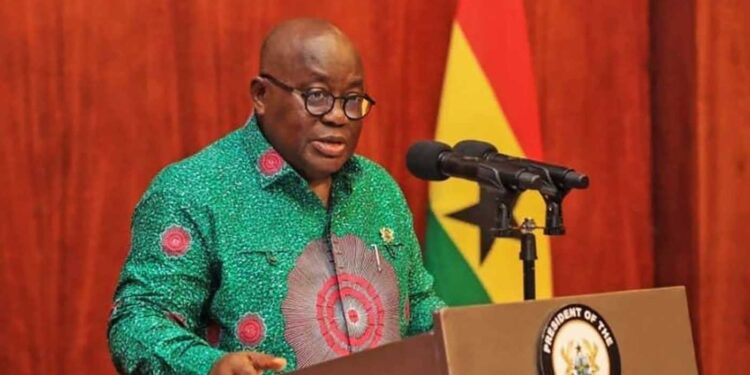President Nana Addo Dankwa Akufo-Addo has said he would await the Supreme Court’s ruling on the constitutionality of the Proper Human Sexual Rights and Ghanaian Family Values Bill popularly called the anti-gay bill recently passed by Parliament before he takes any action to assent to the bill or otherwise.
The President said this at the New Year greetings event with members of the Diplomatic Corps at Peduase, where he disclosed a Ghanaian citizen is challenging the anti-gay bill in the Supreme Court.
Assuring the international community of Ghana’s commitment to upholding its Human Rights record, he said “I am aware that last week’s bi-partisan passage by Parliament of the Proper Human Sexual Rights and Ghanaian Family Values Bill, on a Private Member’s motion, has raised considerable anxieties in certain quarters of the diplomatic community and amongst some friends of Ghana that she may be turning her back on her, hitherto, enviable, longstanding record on human rights observance and attachment to the rule of law. I want to assure you that no such back-sliding will be contemplated or occasioned.
“I think it will serve little purpose to go, at this stage, into the details of the origin of this proposed law, which is yet to reach my desk. But, suffice it to say that I have learnt that today, a challenge has been mounted at the Supreme Court by a concerned citizen to the constitutionality of the proposed legislation.
“In the circumstances, it would be, as well, for all of us to hold our hands, and await the decision of the Court before any action is taken. The operation of the institutions of the Ghanaian state will determine the future trajectory of the rule of law and human rights compliance in our country.”
Parliament approved the bill that criminalizes LGBTQ+ activities, as well as their promotion, advocacy, and funding on February 28, 2024
Those found guilty could face a jail term ranging from 6 months to 3 years, while those promoting and sponsoring the act could face a jail term between 3 to 5 years.
The Bill’s passage has attracted criticism from various stakeholders, including the international community like the USA, and USAID, among others.



